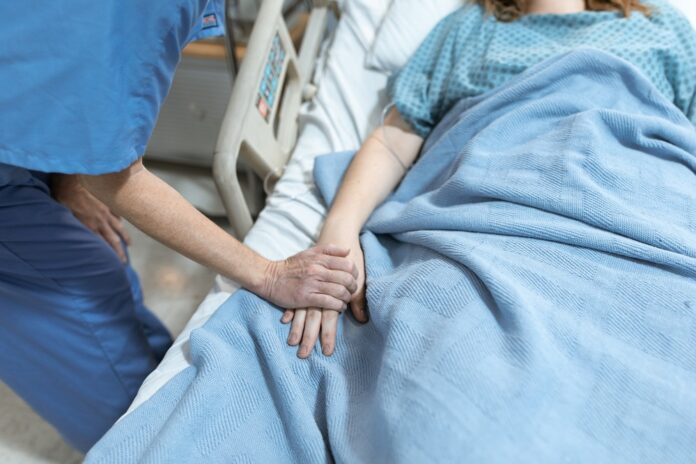As a nurse, you always strive to give the best possible care to your patients. A critical part of this is having the right equipment and medical supplies on hand. These tools can make your job easier, safer, and more efficient.
In this post, we’ll provide six hands-on tips about equipment and medical supplies that will make anyone a better nurse. Whether you’re a seasoned professional or just starting your career, these tips will help you improve the quality of care you provide.
Practice Proper Hand Hygiene
One of the most crucial steps in preventing illnesses is practicing proper hygiene, especially hand hygiene. As a nurse, it’s essential to always follow hand hygiene policies and protocols to prevent infections from spreading to your patients. Never touch your face, hair, or skin while wearing gloves, and always wash your hands before and after caring for each patient.
Proper hand washing is a simple yet effective way to reduce the spread of germs. Start by wetting your hands with clean, running water and applying soap. Then, lather your hands, rubbing them together vigorously for at least 20 seconds—making sure to get the backs of your hands, between fingers, and under fingernails. Finally, rinse your hands with clean water and dry them with a single-use towel. Use the same towel to turn off the faucet, and then throw it away in a no-touch waste bin. Following these steps will help reduce the spread of germs and keep you and your patients from getting sick.
Keep Your Equipment Organized
One of the keys to being an effective nurse is having your equipment organized at all times. This means having everything in its designated place and knowing exactly where it is when you need it. Use a bag or pouch to keep your supplies in one place for easy access.
Use color-coded labels to differentiate between medications and supplies, so you don’t confuse them. Dispensing medication errors can lead to patient harm, lawsuits, and unnecessary medical expenses. Organizing your equipment has to be part of your daily routine.
Familiarize Yourself with Equipment
As a nurse, you’ll encounter a wide variety of equipment, from IV pumps to ventilators and heart monitors. When you get new equipment, take the time to learn how it works and how to troubleshoot any problems that may arise, including antenna testing and system diagnostics. Ask other nurses on the unit for advice if you’re unsure about something. Knowing your equipment inside and out will allow you to provide better care to your patients.
In addition to traditional medical equipment, nurses should also be familiar with unorthodox tools and supplies. For example, wound irrigation kits are used to clean open wounds before dressing them. If you ever encounter a deep tissue injury, having the right debridement scissors on hand is essential for ensuring that the wound heals properly. Nurses may also need to know how to use splints and braces, particularly for pediatric patients.
Knowing how to properly apply these types of devices is critical for providing the best care possible. By familiarizing yourself with unorthodox equipment, you can ensure that you are prepared for any situation that may come your way.
Use the Right Tool for the Job
Using the right tool for the job is crucial for a nurse. This means using the appropriate equipment for the task at hand, whether it’s selecting the correct size needle or choosing the correct gauge to lumbar puncture.
Make sure you’re using the right equipment, not guesswork. If you’re unsure about which tool to use for a particular task, don’t hesitate to ask for assistance from a senior or supervisor. This can prevent injury or unnecessary harm to a patient and keep you out of lawsuits.
Label Everything
Labeling everything, including syringes and venipuncture tubes, is essential when managing a patient’s care. When labs and cultures get sent to labs, they need to be labeled properly to make their diagnosis. Proper labeling can avoid mix-ups, which can result in administering drugs or treatments to the wrong patient, resulting in severe side effects or even death.
To ensure labels are readable to other medical staff, it’s important to double-check that all information written on the label is legible and concise. Make sure the font size is large enough for everyone to read, and use a permanent marker when writing on labels or tape. Additionally, avoid using abbreviations so there is no confusion over what the label is referring to.
Finally, be sure to add your initials and the date on any labels that you create so other medical staff will know who wrote it and when it was written. Following these steps can help ensure that labels are readable by everyone in the medical team, making patient care safer and more efficient.
Inspect Supplies and Disinfect Equipment
Inspecting and preparing equipment are critical components to prevent the spread of infection and using equipment that’s not broken or contaminated. Use disposable items only once unless they’re reusable, and discard them properly. Reusable items should undergo disinfection after every use according to the manufacturer’s recommendations to ensure that they are clean.
Inspecting and checking for soiled items is an important part of ensuring that medical supplies and equipment are safe to use. If you suspect something has been soiled, inspect it closely for visible signs such as discoloration or a foul odor. Look for liquid, dirt, or other foreign materials on the item, as well as any signs of damage.
Additionally, if you notice any unusual noises or smells coming from the equipment or supplies, it’s best to discard them and replace them with new ones immediately. Always take extra precaution when handling items that may have been exposed to bodily fluids or infectious materials.
Communicate Effectively
Effective communication is crucial to improve patient care. For example, when placing a central line, communication between the physician and your team will ensure that the right gauge, location, and protocols are followed. Collaboration between the physician, nurse, and support staff should be clear, detailed, and up front.
These six tips for equipment and medical supplies will help make you a better nurse. Remember to keep your equipment organized, familiarize yourself with your tools, use the appropriate equipment for the job, label everything, inspect supplies, and disinfect equipment, and communicate effectively. By following these guidelines, you’ll be better prepared to provide excellent care and prevent errors or harm to your patients.















